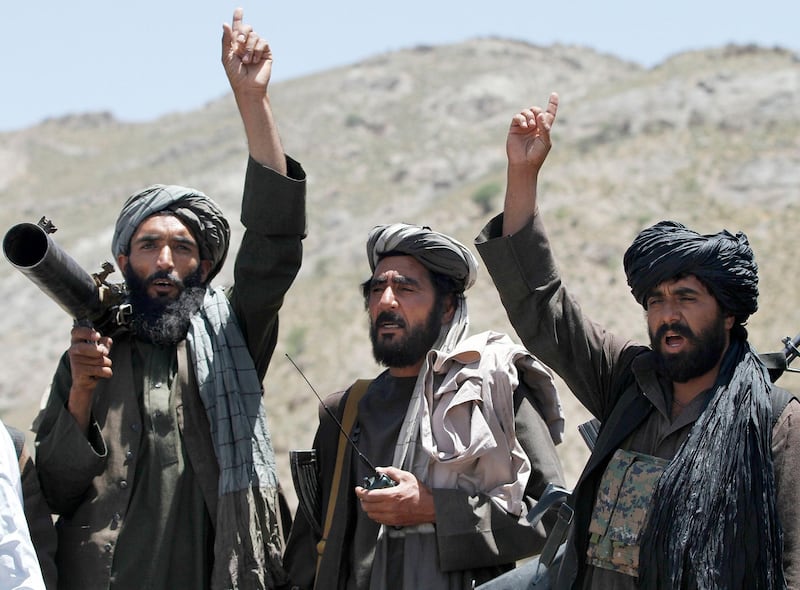The Taliban's policy on whether or not to accept peace talks with Afghanistan's government has been thrown into doubt by an editorial published on the group's website.
The insurgents were offered incentives two weeks ago by President Ashraf Ghani in exchange for them ending violence.
Although the Taliban's official spokesman has not yet issued a response, the editorial published on Tuesday evening referred to the Kabul process as "moot", saying the forum where Mr Ghani said the door was open for peace "was again for show and no solid material was forwarded which could bring about peace in Afghanistan".
After many failed attempts at peace talks, the government's offer last month came without preconditions.
It was titled Offering Peace: Framing the Kabul Conference, and laid out a seven-point roadmap for peace. The offers made to those insurgents willing to renounce violence included political recognition, a release of prisoners, as well as passports to Taliban members and visas to their families. The deal also offered the Taliban a political office in Kabul and efforts to remove sanctions against their leaders.
The article released by the Taliban, which was headlined "Who are the true enemies of peace?" urged the United States, instead of the Kabul government, to come to talks, in what appears a snub to Mr Ghani, who they see as a stooge for America.
"The only way to bring effective peace in Afghanistan is to talk to those who have started this illegitimate war in Afghanistan…. The permission of peace and war are with the Americans and they have taken the land and air space of Afghanistan under their unlawful control," it read.
The editorial has been met by mixed reactions over what the Taliban's aims are.
"I don't get a sense of a complete rejection from their statement," said Orzala Nemat, an Afghan scholar and researcher.
"The conflict has taken a lot of life, regardless of whether it is a soldier, a civilian or even the Taliban fighters who are from Afghanistan, and this is the first comprehensive attempt towards ending that," she added, referring to the prior peace negotiations as “talks about talks”.
The US administration, as well as other international parties, have said the peace process is for Mr Ghani to administer.
US Defence Secretary Jim Mattis, on a surprise visit to Kabul on Tuesday, reaffirmed that position. "We want the Afghans to lead and to provide the substance of the reconciliation effort," he told reporters. "It's all working to achieve a political reconciliation, not a military victory."
Since Mr Ghani issued his peace offer the Taliban has continued its attacks. On Wednesday, a car bomb in Helmand province killed at least two policemen. And earlier this week a district in Farah province briefly fell into hands of the Taliban who brazenly tried to enter the provincial capital, causing embarrassment to Afghan security forces.





